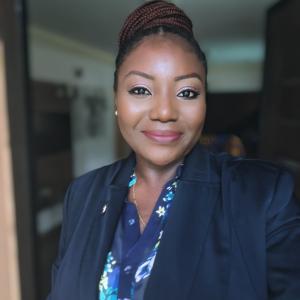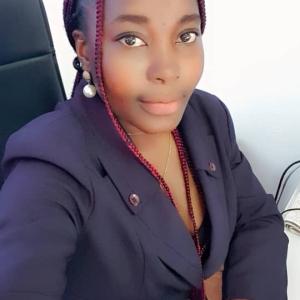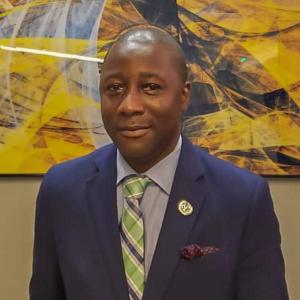UN Agencies Weekly Highlights - 29th September- 3rd October 2025
06 October 2025
Weekly Highlights
RCO
Strengthening cross-border peace and resilience in the Gola Forest corridor: A Sierra Leone–Liberia partnership.
The Gola Forest region, spanning the Sierra Leone–Liberia border, is a biodiversity hotspot whose people share strong cultural and economic bonds. The GOLA-REAP Project (Resilience, Empowerment, Access, and Peacebuilding)—funded by the UN Peacebuilding Fund (PBF)—builds on these shared ties to promote peace, sustainability, and regional cooperation.
By connecting forest rangers, border authorities, youth, women, and local leaders, the project strengthens inclusive governance, climate-smart livelihoods, and environmental stewardship. Communities now use rice farms as spaces for dialogue and cohesion, with 40 inland valley swamps supporting sustainable rice production across 57 participating communities.
Implementation began in February 2025 under the oversight of a Joint Project Steering Committee, co-chaired by the Internal Affairs Ministers of both countries and the UN Resident Coordinators. At its October 2025 meeting in Monrovia, the committee reviewed progress, addressed challenges, and endorsed updates to the work plan and budget, emphasizing stakeholder inclusion, sustainability planning, and joint resource mobilization.
During a visit to project sites in Bayama and Zimmi, UN RC Seraphine Wakana reaffirmed her commitment to amplifying community voices, calling GOLA-REAP “a shared vision for peace, prosperity, and sustainability.” Sierra Leone’s Minister Morie Lengor highlighted the project’s success in peacefully resolving a border dispute in Koindu, while Liberia’s Minister F. Sakila Nyumalin Sr. praised it as “a beacon for regional cooperation and environmental conservation.”
Jointly implemented by IOM and WFP, in partnership with both governments, the Mano River Union Secretariat, civil society organizations, and national conservation bodies (Liberia’s FDA and Sierra Leone’s NPAA), GOLA-REAP stands as a model of community-led, cross-border peacebuilding and sustainable development in West Africa.
WHO
WHO donation strengthens Sierra Leone’s health system with essential supplies and equipment.
Sierra Leone’s health system has received a major boost following the donation of essential supplies and equipment worth USD 456,483.20 from the World Health Organization (WHO) to the Ministry of Health (MoH) and the National Public Health Agency (NPHA).
The package includes six computers for the AMR coordination at NPHA, Four Laboratories and Pharmacy Board, provided with support from the Fleming Fund, to establish a digitized system that enables real-time analysis of antimicrobial importation data. This will strengthen surveillance of antimicrobial resistance (AMR) and improve accountability in medicine importation. WHO also delivered 92 tablets through the Pandemic Fund to enhance the Integrated Disease Surveillance and Response (IDSR) system, ensuring health workers can electronically collect and transmit data for faster outbreak detection. In addition, essential supplies and office equipment funded by the Global Fund were handed over to operationalize five Regional Emergency Operations Centres (EOCs) in Bo, Western Area Rural, Port Loko, Kenema, and Bombali, which are critical for timely and coordinated emergency response.
Speaking at the ceremony, WHO Country Representative Dr. George Ameh stressed the importance of the support:
“This is more than just a delivery of equipment. By digitizing systems, strengthening electronic reporting, and equipping regional structures, this donation will boost real-time disease monitoring, improve decision-making, and ensure faster response to outbreaks.”
Deputy Minister of Health 1, Prof. Charles Senessie, expressed appreciation:
“This contribution is vital for our preparedness and response capacity. With these tools, we can detect, analyze, and respond to health threats more effectively, safeguarding the health of our people.”
The donation reflects WHO’s continued commitment, alongside global partners, to building a stronger, more resilient, and sustainable health system in Sierra Leone.
UNICEF
Raising awareness on Mpox in schools.
With Mpox cases in Sierra Leone now on the decline, UNICEF, in collaboration with the National Public Health Agency and the Ministry of Health, is engaging schools in targeted awareness-raising sessions to sustain progress against the disease. These sessions equip the pupils, teachers, and school authorities with practical knowledge on how to prevent infections, combat stigma, and maintain safe classrooms through personal and school hygiene, early detection, and timely referral.
By reaching schools, the initiative ensures that children—the most active members of their communities—become agents of change, spreading accurate information to peers, families, and neighbours. This approach is not only crucial for maintaining a safe environment in classrooms but also strengthens community awareness and builds resilience against future outbreaks.
Sustained awareness and preventive action are crucial for maintaining a safe environment in classrooms and protecting entire communities from Mpox.
Click below to read more.



Osman Sankoh












